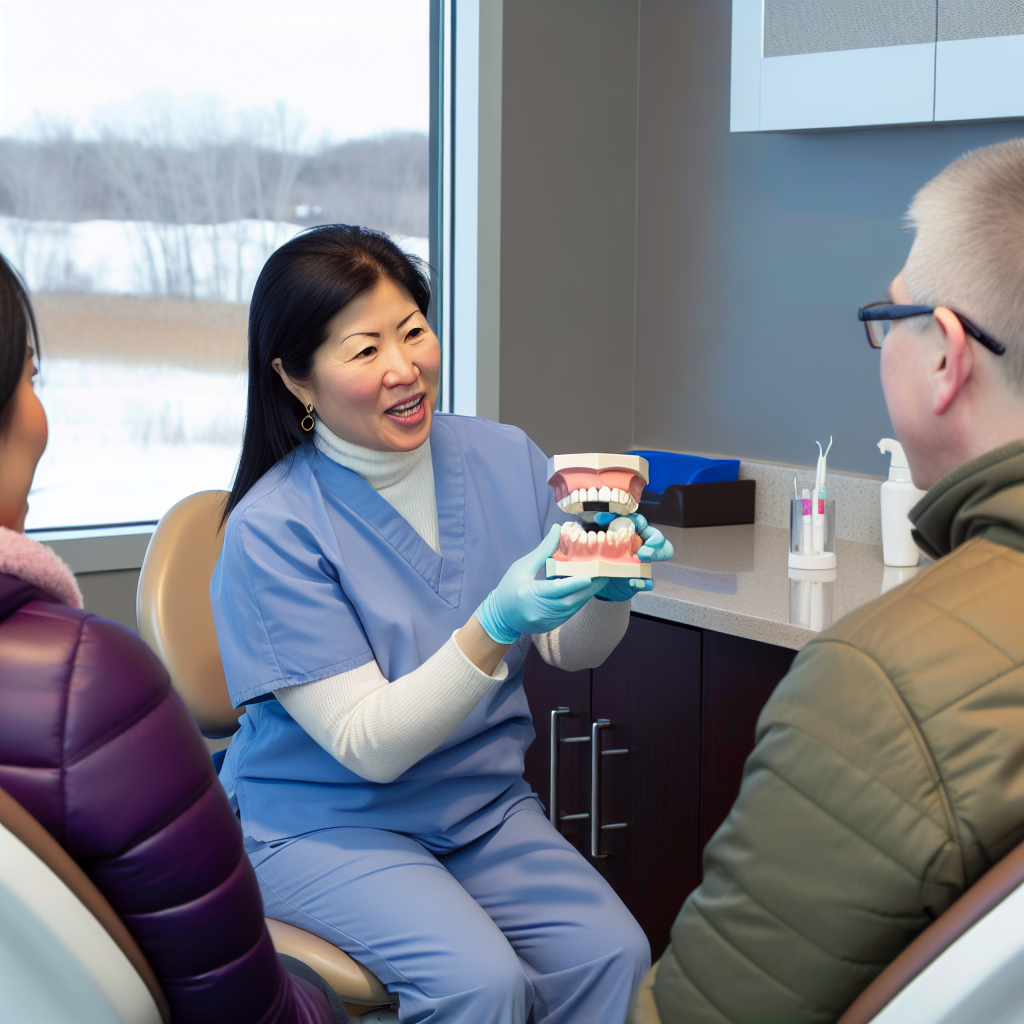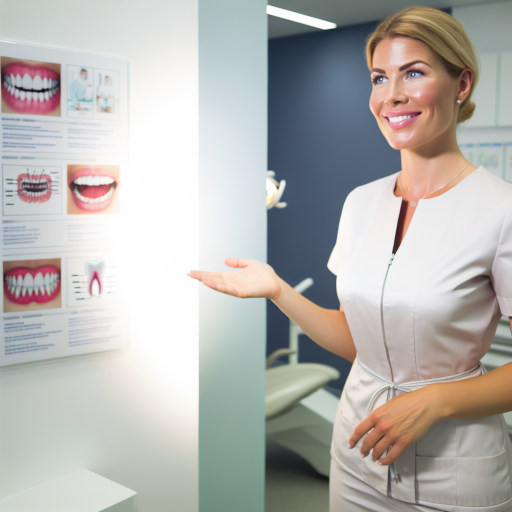Overview of the Dental Profession and Its Significance in Healthcare
The dental profession plays a crucial role in maintaining overall health.
Dentists prevent, diagnose, and treat oral diseases and conditions.
They help improve patients’ quality of life through oral health care.
Oral health influences general health and well-being significantly.
Good oral hygiene prevents systemic diseases, such as heart disease.
Therefore, dentists are vital to healthcare teams.
The Scope of Dentistry
Dentistry encompasses various specialties and fields of study.
General dentistry focuses on routine care and preventive measures.
It also addresses common issues like cavities and gum disease.
Specialties include orthodontics, oral surgery, and pediatric dentistry.
These areas require advanced training and specialized skills.
The Impact of Dental Care on Communities
Dentists contribute to public health initiatives and education.
They raise awareness about the importance of oral hygiene.
Community outreach programs emphasize preventive care and screenings.
Such initiatives significantly reduce dental health disparities.
Access to dental care ensures healthier communities overall.
Advancements in Dental Technology
The field of dentistry has seen remarkable technological advancements.
Innovative tools enhance diagnostic accuracy and treatment efficiency.
Dental imaging technologies enable early detection of problems.
Teledentistry has improved access to care for underserved populations.
Such advancements continue to shape the future of dental practice.
Educational Requirements for Aspiring Dentists
Prerequisites for Dental School
Prospective dental students must complete certain prerequisites before applying.
Typically, these prerequisites include courses in biology, chemistry, and physics.
A strong foundation in the sciences is essential for dental education.
Moreover, students should also take coursework in mathematics and psychology.
Unlock Your Career Potential
Visualize a clear path to success with our tailored Career Consulting service. Personalized insights in just 1-3 days.
Get StartedSome dental programs may require additional courses, such as microbiology or anatomy.
It is crucial to consult specific dental schools for their unique requirements.
Recommended Undergraduate Programs
A variety of undergraduate majors can prepare students for dental school.
Common choices include biology, chemistry, and biochemistry.
These majors provide the necessary scientific background for future dental coursework.
Other students might choose health sciences or psychology as their major.
Regardless of the major, students should focus on achieving strong grades.
Participating in extracurricular activities can also enhance applications.
Research experience and volunteer work in dental settings are highly beneficial.
Preparing for the Dental Admission Test (DAT)
The DAT is a crucial step in the dental school application process.
Students should begin studying for the DAT early in their undergraduate careers.
Many resources, including prep courses and study guides, are available.
Practice tests help familiarize students with the exam format and timing.
Strong scores on the DAT can significantly improve admission chances.
Gaining Relevant Experience
Acquiring hands-on experience in the dental field is vital.
This experience can come from shadowing dentists or volunteering in clinics.
Many dental schools look for applicants who demonstrate commitment to the field.
Students should seek opportunities to interact with patients and learn about dental practices.
Networking with professionals in dentistry can prove invaluable.
Additionally, joining pre-dental clubs offers resources and support for aspiring dentists.
Choosing a Dental School
Location Considerations
Location plays a significant role in your dental school selection process.
Proximity to family and friends may impact your decision.
Additionally, living costs can vary greatly by region.
Consider whether you prefer an urban, rural, or suburban setting.
Program Reputation
The reputation of a dental school can affect your future career opportunities.
Research faculty qualifications and student outcomes for insights.
Connect with alumni to gain perspectives on their experiences.
Look for schools that are accredited by recognized dental education bodies.
Curriculum and Specializations
Review the curriculum to understand the courses offered.
Check if the school provides opportunities for hands-on clinical experience.
Consider schools that offer specializations that interest you.
A diverse curriculum can enhance your educational experience.
Class Size and Student Support
Class size can greatly influence your learning environment.
Smaller classes often provide more personalized attention.
Investigate available student support services, such as tutoring.
Support services can contribute to your academic success.
Financial Considerations
Evaluate the cost of tuition and fees across different schools.
Look into scholarship opportunities and financial aid options.
Understanding your finances will help you make an informed decision.
Consider the return on investment based on the school’s reputation.
You Might Also Like: How to Become a Podiatrist in Canada
Curriculum Details: What to Expect in Dental School Education
Overview of Dental School Structure
Dental school typically spans four years of intensive study.
Students undertake a combination of classroom education and hands-on clinical training.
This educational journey prepares students for licensure and practice.
Basic Sciences and Core Subjects
The first two years focus on fundamental sciences.
Courses include anatomy, biochemistry, and microbiology.
Students gain an understanding of human biology and disease processes.
These subjects lay the groundwork for clinical knowledge and skills.
Clinical Training and Skills Development
The last two years emphasize clinical experience.
Students work with real patients under faculty supervision.
They develop diagnostic and treatment planning skills.
This hands-on training is vital for building confidence and competence.
Specialized Courses and Electives
Students may choose electives to explore specific areas of interest.
Popular specialties include orthodontics, periodontics, and oral surgery.
These courses provide deeper insights into various dental fields.
Electives help students tailor their education to future career goals.
Research and Evidence-Based Practice
Many programs encourage students to engage in research activities.
Students learn the importance of evidence-based practice.
This knowledge is crucial for informed decision-making in patient care.
Participating in research enhances critical thinking and analytical skills.
Preparing for Licensing Exams
Dental school prepares students for national and state licensing exams.
Students must pass the National Board Dental Examinations.
Hands-on clinical assessments often accompany these written tests.
Preparation emphasizes both theoretical knowledge and practical skills.
Extracurricular Opportunities
Students can join dental societies and organizations.
These groups often host events and offer networking opportunities.
Involvement enhances leadership skills and professional growth.
Participating in community service projects can also be beneficial.
Delve into the Subject: Understanding the Role of a Podiatrist in Healthcare
Clinical Training: The Importance of Practical Experience in Dental Education
The Role of Clinical Training
Clinical training is a cornerstone of dental education.
It provides students with hands-on experience essential for their professional development.
Students learn to apply theoretical knowledge in real-world scenarios.
This training prepares them for the challenges they’ll face as practicing dentists.
Where Clinical Training Occurs
Students typically gain clinical experience in dental schools.
Here, they work in university-run clinics under professional supervision.
Some institutions partner with local dental practices for additional exposure.
This collaboration enhances learning opportunities and broadens skill sets.
Mentorship and Guidance
Mentorship plays a vital role in clinical training.
Experienced dentists guide students through complex cases.
This relationship fosters a supportive learning environment.
Students benefit from valuable insights and practical tips.
Patient Interaction and Communication Skills
Clinical training emphasizes patient interaction.
Students learn to communicate effectively with diverse patient populations.
This skill is crucial for building trust and ensuring patient comfort.
Effective communication also aids in gathering accurate patient histories.
Implementation of Techniques
During clinical training, students practice various dental techniques.
They perform procedures under supervision, refining their skills over time.
This practical experience builds confidence in their abilities.
Over time, they learn to handle a variety of dental tools and procedures.
Assessment and Evaluation
Continuous assessment is essential during the clinical training process.
Students receive feedback from instructors on their performance.
This assessment helps identify areas for improvement.
Regular evaluations ensure that students meet professional standards.
Implications of Clinical Training in Dentistry
Clinical training is indispensable in dental education.
It equips students with the necessary skills and knowledge to succeed.
Ultimately, this hands-on experience shapes competent and confident dentists.
Learn More: How to Excel in Your Dentistry Internship or Residency

Licensing Process: Understanding the Examinations and Requirements in Canada
Overview of the Licensing Process
Becoming a licensed dentist in Canada requires several important steps.
The journey begins with an accredited dental school education.
Following graduation, aspiring dentists must pass a series of examinations.
Each province in Canada has its own licensing regulations.
Furthermore, understanding these regulations is crucial for success.
Educational Requirements
First, candidates must complete a bachelor’s degree.
This degree should ideally include courses in science and healthcare.
Next, they need to attend an accredited dental program.
These programs typically last four years and cover various dental topics.
During their studies, students gain essential clinical skills.
National Dental Examining Board of Canada
Candidates must then pass the National Dental Examining Board (NDEB) examinations.
The NDEB certification process has two main components.
- The written examination assesses theoretical knowledge.
- The Objective Structured Clinical Examination evaluates practical skills.
Successful completion of both components is essential for certification.
Provincial Licensing Bodies
After obtaining NDEB certification, candidates apply for a provincial license.
Each province, like Ontario or British Columbia, has its own licensing requirements.
For instance, Ontario requires completion of the Jurisprudence Examination.
In contrast, British Columbia emphasizes local clinical competency evaluations.
Continuing Education Obligations
Licensed dentists must engage in lifelong learning.
Continuing education helps them stay updated on best practices.
Most provinces mandate a specific number of continuing education credits.
This requirement ensures that dental professionals maintain their competencies.
Challenges and Considerations
The licensing process can be competitive and challenging.
Aspiring dentists should prepare thoroughly for their examinations.
Additionally, financial planning is crucial due to costs associated with education.
Networking with professionals and mentors can also provide valuable insights.
Ultimately, persistence and dedication are vital for success in this field.
Learn More: A Day in the Life of a Canadian Dentist
Residency Programs: Opportunities for Specialization in Dentistry
Overview of Dental Residencies
Dental residencies offer advanced training for dentists.
They provide hands-on experience and specialized knowledge.
Completing a residency is crucial for certain dental specialties.
Types of Dental Specialties
There are several recognized dental specialties in the U.S.
Examples include orthodontics, periodontics, and oral surgery.
Each specialty has unique training requirements and focuses.
Benefits of Completing a Residency Program
Residency programs enhance clinical skills significantly.
They also expose dentists to complex cases they may encounter.
Additionally, residents often build valuable professional networks.
Application Process for Residency Programs
Applying for a dental residency requires careful preparation.
First, complete the necessary dental education requirements.
Next, pass the National Board Dental Examination.
Finally, submit applications through the Postdoctoral Application Support Service.
Funding and Financial Considerations
Many dental residency programs offer stipends to residents.
Residency positions can help offset tuition costs.
Consider financial aid options available for dental students.
Future Opportunities After Residency
Completing a residency opens up various career paths.
Graduates can work in private practices or academic settings.
Some may choose to conduct research or teach future dentists.
Continuing Education and Professional Development
Importance of Lifelong Learning
Staying updated is essential in dentistry.
New technologies and techniques emerge regularly.
Lifelong learning enhances professional skills.
It also benefits patient care and outcomes.
Sources of Continuing Education
Dental schools often provide refresher courses.
Local dental associations offer workshops and seminars.
Online platforms also present numerous learning opportunities.
For example, the American Dental Association hosts webinars.
Professional journals publish research and new techniques.
Certification and Licensure Requirements
Many states require continuing education for licensure renewal.
Check local regulations for specific requirements.
Completion certificates help maintain compliance.
Some states may also require specific courses.
Networking and Collaboration
Connecting with peers can enhance learning opportunities.
Join study groups or professional associations to network.
Participate in local dental meetings for valuable insights.
Collaboration leads to shared knowledge and experiences.
Staying Informed About Innovations
Regularly read dental journals and articles.
Follow influential dental professionals on social media.
Attend conferences to learn about the latest advancements.
This knowledge keeps practices current and effective.
Self-Directed Learning
Drive your own education through personal study.
Identify areas of interest or deficiency to enhance skills.
Use online courses and resources for flexible learning.
Set personal goals for continuous improvement.
Additional Resources
Licensure for International Dentists | American Dental Association




